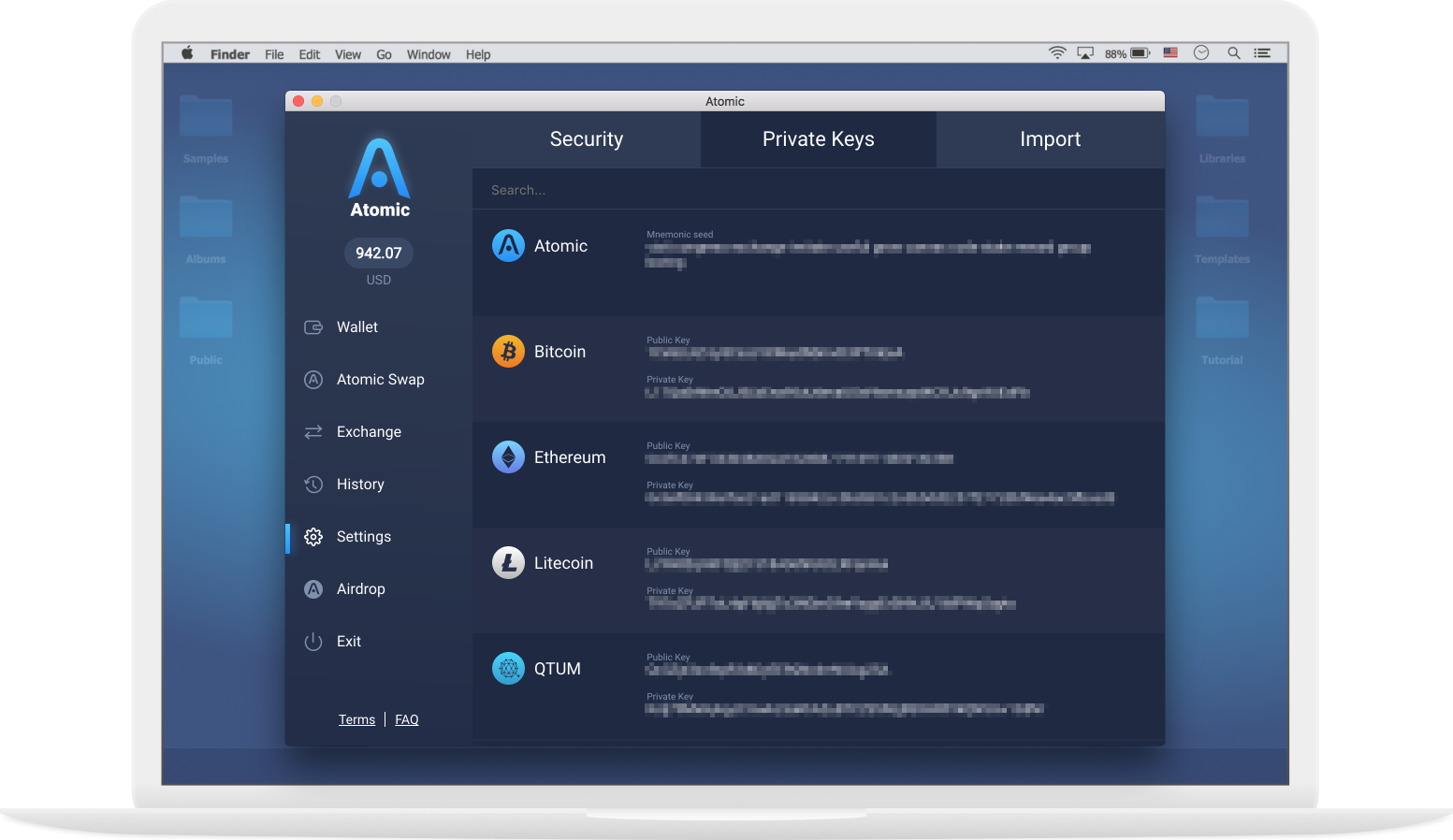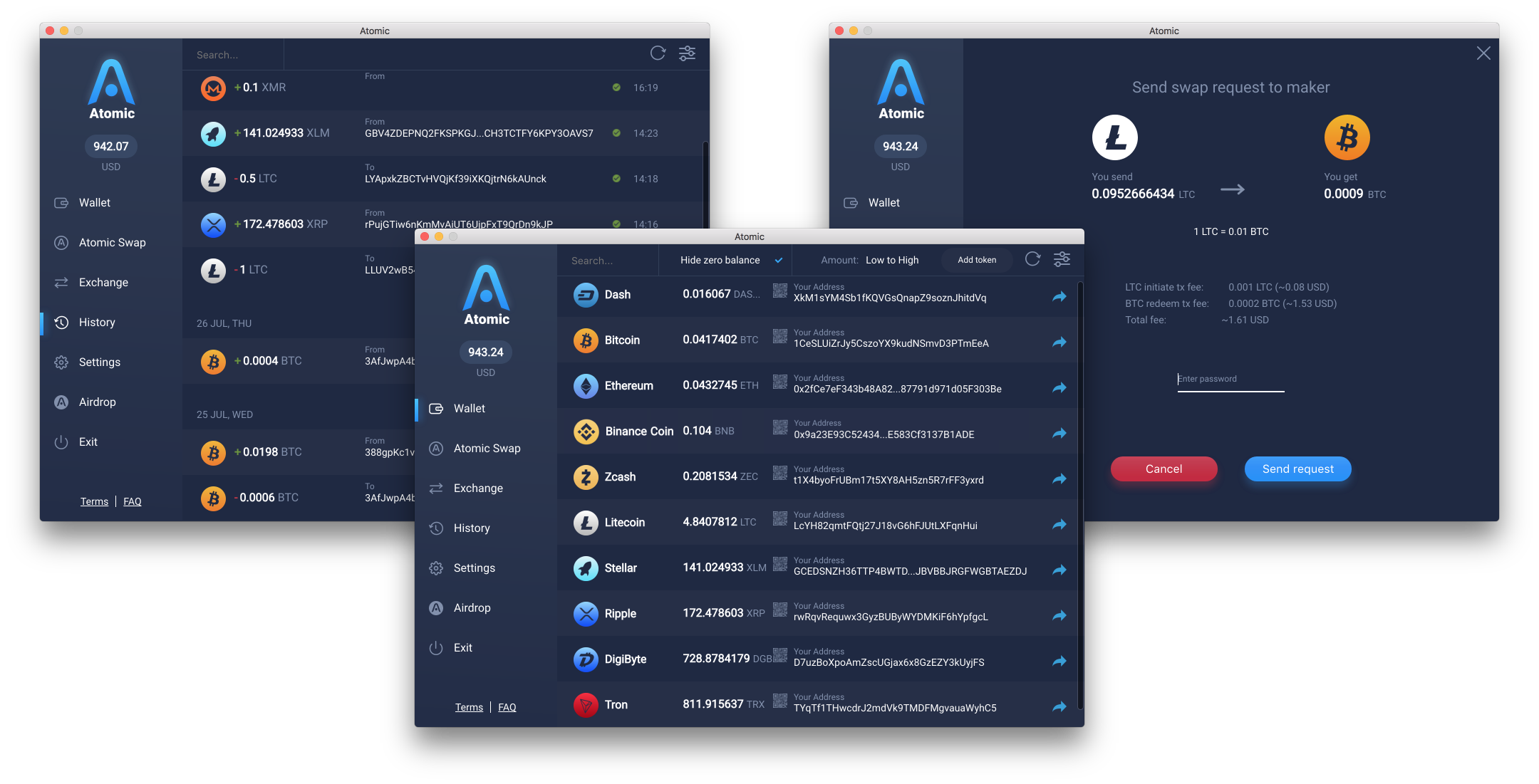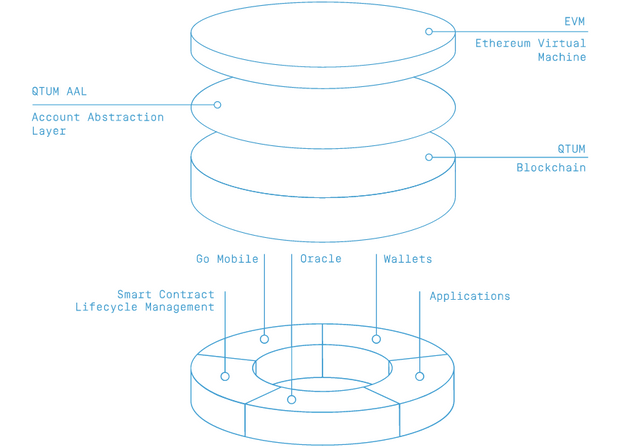The latest version of the wallet: 1.38.4









Atomic Wallet provides a powerful, in-demand service
that allows users to reduce effort spent on managing crypto assets and
makes it transparent and reliable

Atomic Wallet is feature-packed. It is the most secure,
trustworthy, transparent and decentralized wallet solution you can imagine.
Download

Instant limitless exchange service, supporting 90+ altcoins
Private, convenient
and fast way to
exchange cryptos

Best option for uncensored cross-blockchain swaps
QTUM (pronounced ‘Quantum’) is a multi-purpose next-gen blockchain platform. It is a Bitcoin fork which runs on the Proof-of-Stake consensus and utilizes Ethereum Virtual. Sounds interesting, isn’t that?
One of the key features of QTUM is that the platform combines both Bitcoin and Ethereum technologies, so that it supports smart contracts and improves interoperability between two major blockchains allowing to take advantage of both.
Smart contracts are a major feature of Ethereum. They represent a computer protocol designed to automate processes related to contract executions. They imply rules, penalties, and conditions on which the operation must be completed.
1) QTUM can be applied differently: from Ethereum and Bitcoin blockchains like SegWit technology to Lightning Network, and Raiden. Compatibility with Ethereum smart contracts helps developers build distributed applications (dApps) on QTUM, and dApps are also enabled for running on QTUM due to backward compatibility.
2) QTUM is running on the UTXO, a scalable and well-protected database. But it gives an ability to implement Simple Payment Verification (SPV) protocol that allows clients (such as lightweight wallets) to interact with smart contracts without storing the whole sequence of blocks.
UTXO (Unsent Transactions Output) database is used by full nodes to understand whether the specific transaction is valid or not. To be valid, all the inputs of the transaction must be stored in the UTXO database. If the transaction is not in the database, then it’s either double-spent or the coins don’t exist in the network.
Simplified payment verification is technology that enables user to not store the full node on the device for confirming the transaction. SPV use software to find the longest chain which is available to link the user’s transaction to it. This technology is implemented in different wallets, like in Atomic Wallet.
SPV also enables to implement smart contracts on the mobile devices, it will help developers create dApps especially for mobile platforms.
For this, the Account Abstract Layer (AAL) was created which is the layer between blockchain and EVM:

The QTUM team is already planning to develop an x86 smart contract virtual machine for QTUM. The x86 architecture is popular, time-proven and well designed, so the virtual machine based on this architecture compensating the shortcomings found in Solidity and the EVM. For one, it allows developers to program smart contracts in popular programming languages like C, C++, C#, and Java.
Qtum is supporting outside data feeds and so-called “oracles”. Oracles are API’s that allow external devices to supply and acquire information from the smart contracts operating on the QTUM platform. They are trusted parties which can perform off-network calculations, supply or aid computations and help to keep virtual machines from being overused. Acceptance of the outside data is especially helpful in business when a huge amount of processing power is required.
Total supply of QTUM is 100.000.000 ERC20 QTUM.
Every new block is generated every two minutes.
Block reward is 4 QTUM.
Block explorer: www.qtumexplorer.io.
Store, send, receive and exchange QTUM with atomic swap option in Atomic Wallet: Decentralized, secured and custody-free solution created for multi-purposes.
Team